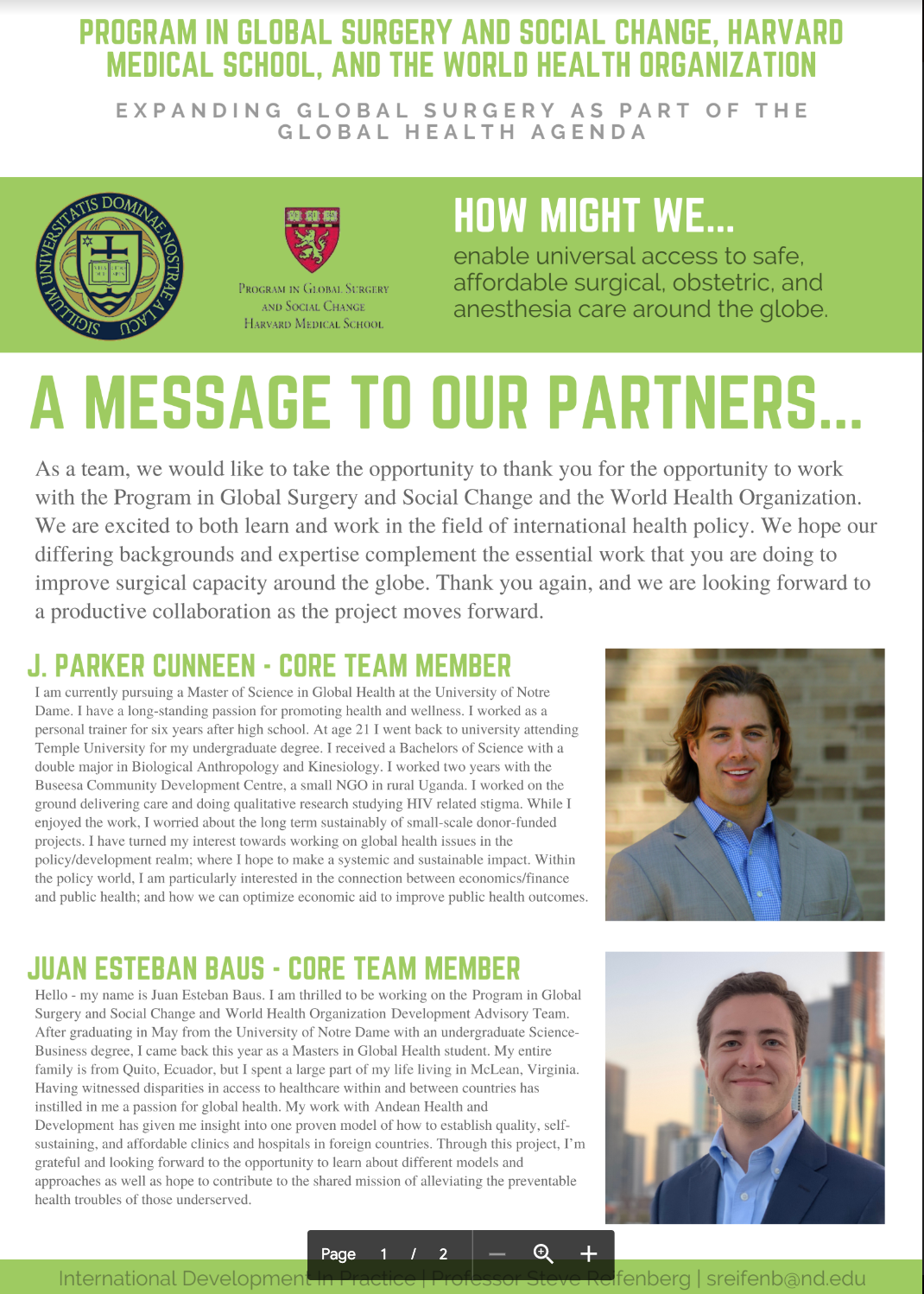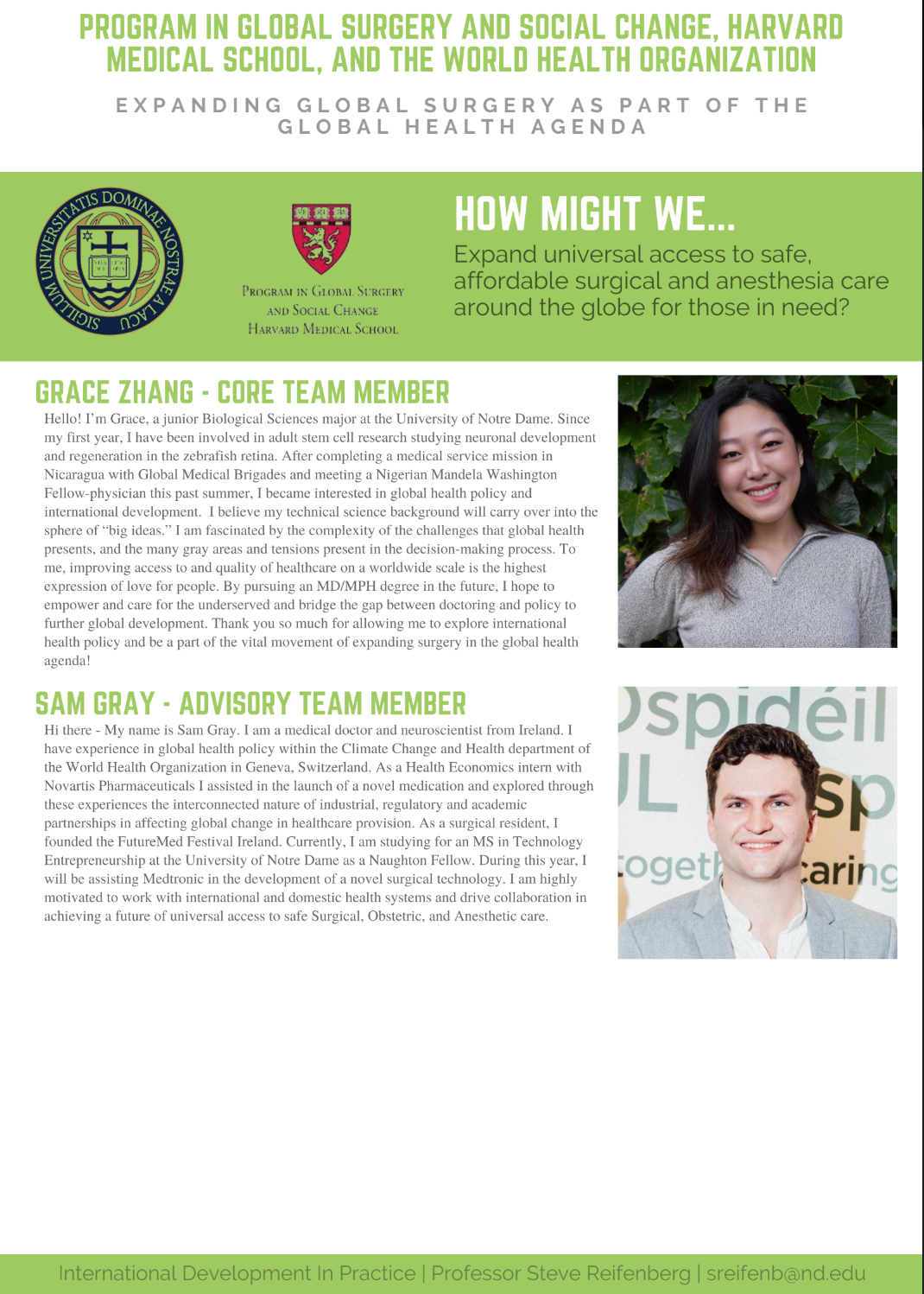Organizational Background:
The Program in Global Surgery and Social Change (PGSSC) is a collaborative effort between the Harvard teaching hospitals, Harvard Medical School/ Department of Global Health and Social Medicine, Boston Children’s Hospital (BCH) and Partners In Health (PIH). This organization emerges out of work of the Lancet Commission on Global Surgery, that was led by Dr. John Meara at Harvard Medical School (and a 1986 ND graduate). PGSSC’s objective is to advocate for Universal access to safe, affordable surgical and anesthesia care when needed. The strategy is two-fold: 1) Global Surgical Systems Strengthening through Research, Advocacy, and Implementation Science, using the Frameworks developed as part of the Lancet Commission on Global Surgery, and 2) Developing Leaders in Global Surgical and Health Systems through Research, Advocacy, and Care Delivery. PGSSC's research focuses on surgical and health systems strengthening that is measurable, transparent, and locally-driven. Click here for the Strategic Plan that focuses on implementation science, research, advocacy, and training leaders.
The Opportunity:
The World Health Organization (WHO) Western Pacific Regional Office (WPRO) has developed a strategic health plan for the region. At the recent World Health Assembly in Geneva, the Regional Director for WPRO indicated his interest to integrate surgery into the regional health plan, and specifically promote the National Surgical, Obstetric, and Anesthesia Plan (NSOAP) model for countries of the WPRO region, potentially including Philippines, Malaysia, Cambodia, Laos, Viet Nam and/or Mongolia.
Initial Steps:
One of the initial steps in the development of NSOAPs is a baseline analysis of a country’s current surgical capacity. Review the Tanzanian background research document that created a baseline for the Tanzania NSOAP as a first step to moving forward on the NSOAP process in the WPRO.
Identify with the client the most relevant countries to research.
Conduct a systematic review of academic literature and government policy documents, including form the Ministry of Health websites, to build a baseline on access to and the state of surgery in each of the selected countries.
What does success look like?
The development of research to support a set of future scenarios or pathways that PGSSC might use for potential partnerships with the WHO regional office to support the development of surgical policy, as well as the strategic use of their experience, expertise, and capacity to maximize their organization’s impact on global surgery goals.
Meet the Team:



